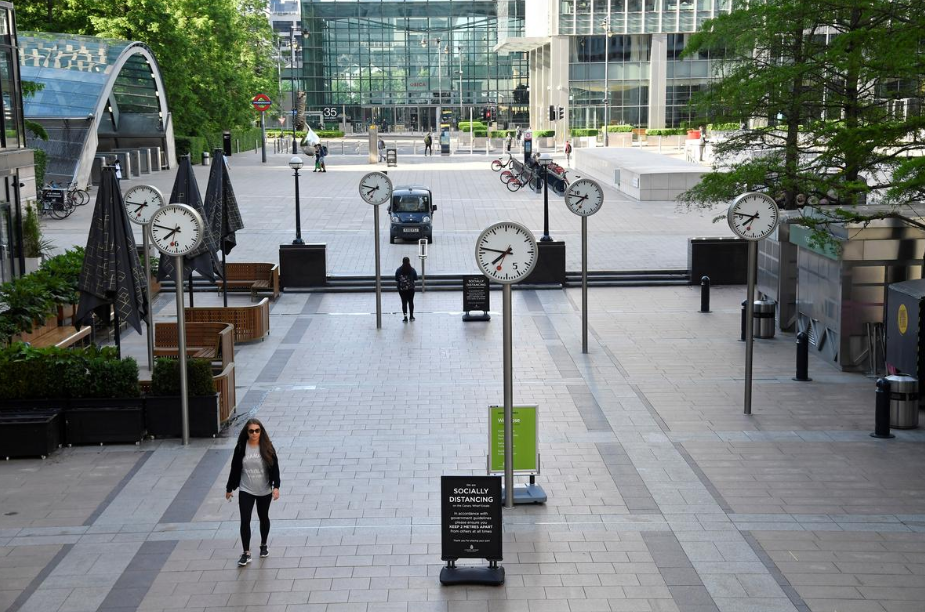Huge rise in pandemic redundancies revealed
By JULIAN SHEA in London | China Daily Global | Updated: 2020-08-10 16:34

The devastating economic impact of the novel coronavirus has been underlined once again after the BBC reported that the number of companies in the United Kingdom notifying the government of plans to make 20 or more job cuts in June was five times as high as the figure for the same time last year.
Companies shedding more than 20 members of staff are required by law to give the government advance notice. Through a Freedom of Information request, the BBC discovered that in June 2020, 1,178 companies informed the government they would collectively be making more than 139,000 redundancies in England, Scotland and Wales. A year ago, the figure was just 345 companies losing 24,000 jobs.
Companies on the list this year include HSBC, aircraft manufacturer Airbus, Royal Mail and airport ground services group Swissport.
The worldwide slump in the aviation industry has continued this month, with British Airways becoming the latest company to announce significant redundancies, with 4,000 compulsory layoffs and 6,000 voluntary ones. In a post on its website, Britain and Ireland's biggest trade union, Unite, called the actions of the airline "industrial thuggery" and said employees were being "forced out by company greed".
Meanwhile, Britain's Prime Minister, Boris Johnson, has spoken of there being a "moral duty" to have all children back in school when the new academic year starts in September.
Many have not attended school in person since lockdown began at the end of March, and doubts have been raised about plans for everyone to return next month.
"This pandemic isn't over, and the last thing any of us can afford to do is become complacent," Johnson wrote in the Mail on Sunday. "But now that we know enough to reopen schools to all pupils safely, we have a moral duty to do so."
The educational, social and financial impact all meant it was vital children returned to classrooms as soon as possible, and for as long as possible, he continued.
"Keeping our schools closed a moment longer than absolutely necessary is socially intolerable, economically unsustainable and morally indefensible."
With parts of Britain having had to introduce local lockdowns because of infection flare-ups, there are fears that there could be a renewed outbreak in the coming months, with the possibility of a more widespread lockdown being required.
In that eventuality, a Downing Street source said, keeping schools open would be a top priority.
"The PM has been clear that businesses including shops, pubs and restaurants should be forced to close first, with schools remaining open for as long as possible," the source said.
But senior figures in the education sector have greeted Johnson's words with scepticism.
"If the government is always on the back foot, putting us in the position of trying to then make some kind of sense out of their guidance, school leaders will do that, but it is a little bit rich I think to be hearing a prime minister say this is a priority," said Geoff Barton, head of the Association of School and College Leaders. "It should have been a priority right from the beginning."
Elsewhere in Europe, Norway is tightening restrictions to prevent fresh outbreaks of the virus.
Since the pandemic began, the country has registered just 256 deaths, one of the lowest figures in Europe, as opposed to 617 in nearby Denmark, 5,763 in Sweden, 9,196 in Germany and 46,566 in the UK.
But an increase in the number of positive test results has led the government to act decisively.
"I think most people have understood it now, the holiday is over," said Health and Care Services Minister Bent Hoie, as new regulations were announced.
All unnecessary overseas travels are now officially discouraged, and visitors coming into the country from so-called red countries must wear face masks until they return home.
The serving of alcohol after midnight in bars and pubs has also been forbidden indefinitely.
"There is a connection between alcohol consumption and how you behave," said Prime Minister Erna Solberg.
She also encouraged workers to work from home whenever possible.
"We recommend that employers arrange for half of their employees to have a home office, where this is possible. Reducing the number of people traveling by public transit during rush hour is important," she added.
In Ireland, which has so far recorded more than 1,700 deaths, travel restrictions for the next two weeks have been introduced in the counties of Kildare, Laois and Offaly to counter what Prime Minister Micheal Martin called a "deep and urgent threat.''
"Those who can work from home should do so, and we are asking employers to facilitate their employees in every way possible for these two weeks to do that," he said, to counter the spread of infection which he called "merciless and unrelenting".
Entertainment venues will be shut, and there will be limitations on food-serving outlets.
























